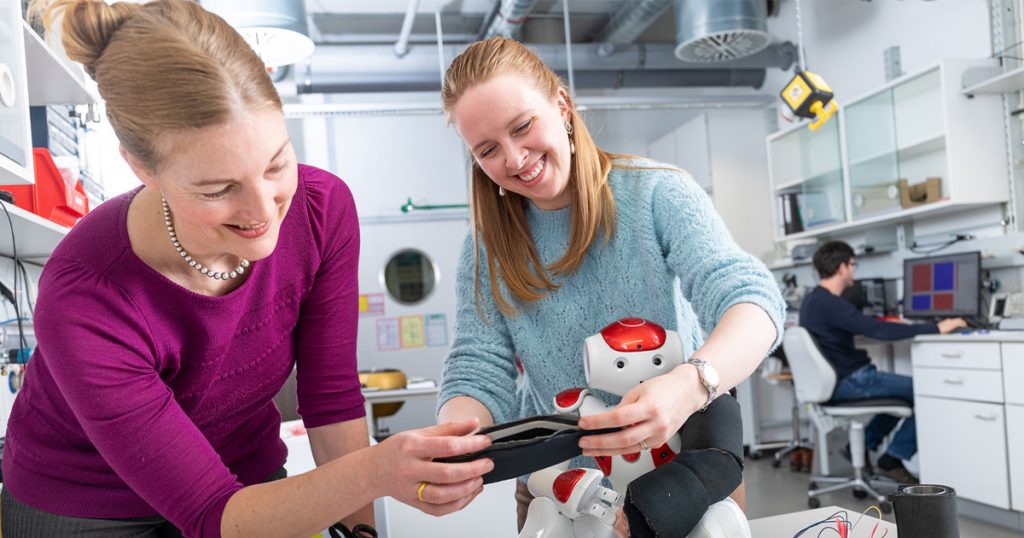Before joining the Min H. Kao Department of Electrical Engineering and Computer Science as an assistant professor in January, Rachael Bevill Burns completed her PhD at the International Max Planck Research School for Intelligent Systems (IMPRS-IS) in Stuttgart, Germany.
Burns completed her doctoral thesis on creating a haptic empathetic robot animal that feels touch and emotion. Haptics refers to the science and technology of interacting with and perceiving information through touch.
Although she’s no longer in Germany, Burns will remain connected to the Max Planck Institute for Intelligent Systems (MPI-IS) in Knoxville. She has been selected to lead a Max Planck Partner Group at the University of Tennessee.
Since 1999, the Max Planck Society has been supporting outstanding young foreign scientists who wish to return to their home countries after an extended research stay at a Max Planck Institute. Max Planck Partner Groups are set up for a maximum of five years and receive up to $22,600 in funding per year.
Since the program’s inception, 269 partner groups have been established. There are currently three partner groups active in the US, and three more will be established this year, including Burns’ group.
For Burns, the funding will facilitate her continued involvement in the research projects she initiated as a doctoral student in Stuttgart.
“I’m excited to start building this relationship between the University of Tennessee and the Max Planck Institute for Intelligent Systems,” Burns said. “When I was writing the application, I found many parallels between the things that UT finds important and the things that MPI-IS finds important, including the idea of using robotics and machine learning to promote the economy and improve healthcare for people in the region.”
Helping Children Through Tech
During her studies in Germany, Burns and Katherine J. Kuchenbecker, who leads the MPI-IS Haptic Intelligence Department, collaborated on several projects, including HERA, which stands for Haptic Empathetic Robot Animal. HERA is intended to demonstrate new technical capabilities that therapists could use to teach children with autism about safe and appropriate touch.
“My PhD was all about figuring out what technology this robot should have in order to be a good tool for children with autism,” Burns said. “We spoke with therapists to figure out the guidelines of what was needed and built the tech up to those specs.”
A professor on her thesis committee liked the idea and proposed making something similar for children with obsessive-compulsive disorder (OCD). The team was awarded a grant from the German government.
The project, KOALA, is in collaboration with MPI-IS and researchers at the University of Tübingen to help design a koala robot to support therapy for children with OCD. Burns will be working with Kuchenbecker and three other members of MPI-IS to help design the robot.
“While I’m setting up my lab here at UT, making connections with clinicians, and learning about what kind of robots are useful for different target audiences and different clinical settings here, we can already be starting to learn about robots for actual children with OCD,” said Burns, who founded the Social Tactile & Assistive Robotics and Intelligence (STARI) Lab at UT.
Burns is eager to explore all the opportunities and collaborations that come from leading a Max Planck Partner Group. She believes keeping ties to her former school will lead to groundbreaking experiences at UT.
“It will help me to get to do more research with them and hopefully send students over there for the summer in the future,” Burns said. “It would be great to have an exchange between the programs that would benefit the UT students.”
Contact
Rhiannon Potkey (865-974-0683, rpotkey@utk.edu)
